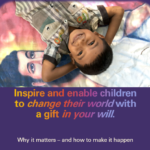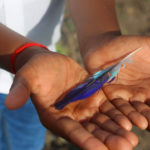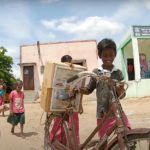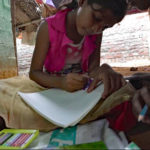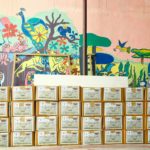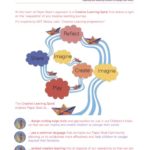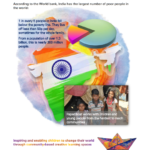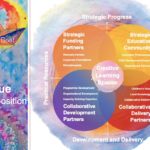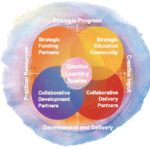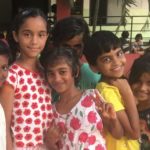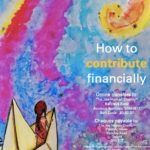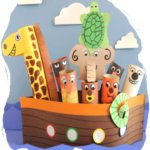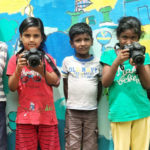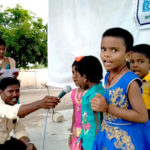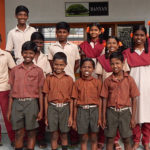Resources
Resources
Download or view these useful resources including PDF's, images and videos. If you need anything else including high resolution imagery, interviews with the team or press statements please get in touch.
Gifts in Wills - A Guide [1.44 MB]
A guide for those considering remembering Paper Boat in their Will.
Donation gift card - Christmas [7.30 MB]
A card template for donations made as gifts during the holiday season. The downloaded file can be personalised and printed (double sided on white card for best results).
Annual Report 2021 [2.25 MB]
This report highlights some of the unprecedented challenges faced by Paper Boat staff, partners and the communities we serve during the year ending April 2021. It also relates how together, and with your support, we have responded.
India 2021 COVID Appeal Letter [781.20 KB]
A sharable letter to invite others to contribute and help Paper Boat and partners respond to community needs during the devastation second wave of the COVID-19 pandemic in India.
India 2020 COVID Response Update [795.35 KB]
An outline of how the Paper Boat community pulled together to respond to the first wave of the coronavirus pandemic.
Annual Report 2020 [1.39 MB]
This report highlights the voyage we have been on with the children we support and work with in 2019/20. This has been a period of hope and uncertainty in equal measure. Many unprecedented challenges lay ahead of us, but we were determined to build on the foundations laid last year.
Creative Learning Spiral [138.49 KB]
At the heart of Paper Boat’s approach is a Creative Learning Spiral that shines a light on the 'waypoints' of any creative learning journey.
Introduction [2.02 MB]
A short summary of who we are, why we work where we do, how Children’s Hubs respond to the situation for vulnerable children in Tamil Nadu India, and how you could get involved.
A Collaborative Model [652.08 KB]
The four ‘spheres’ of the Paper Boat model that together make change possible. Read more if you are interested in becoming a collaborative delivery partner, a collaborative development partner, a strategic funding partner or joining the strategic education community.
The four spheres [1.63 MB]
A one page PDF of the four spheres in our operating model.
Creativity Coalition Detail [1.22 MB]
Read more about how the 5 C’s of the creativity coalition can bring about real change. As a coalition we hope to inspire Curiosity, Consideration, Commitment, Collaboration and Creativity in order to establish playful and creative learning spaces at the heart of communities through innovative partnerships.
The project [3.34 MB]
Our project enables young people from marginalised communities to access inclusive learning spaces. Read more about the rationale behind Paper Boat’s ongoing project work, and how you could support hard to reach communities.
How to contribute financially [0.00 PB]
You can give online today through our donate page, or click here to download the details to set up direct bank transfers, standing orders or giving via cheque.
What's involved in being involved [3.17 MB]
Examples of the individuals and organisations who collaborate with us to unlock the infinite potential of every child.
Annual Report 2019 [1.86 MB]
Annual Report 2018 [492.60 KB]
Annual Report 2017 [828.82 KB]
Dancing Colours
When children are invited to create something new without strict rules or rigid instruction (for example through painting or drama), it allows them to explore unchartered waters – discovering and tapping their own sources of inspiration. They show us who they are and what they can do, in their own unique voice.
Children’s voices and creativity take centre stage in the short film below called ‘Dancing Colours’ which highlights some of the artistic activities that children experience together, as part of CEDAR’s programmes which put learning and creativity at the heart of communities.
“The Making of Little Dreams”
This short film gives a wonderful insight into how children from our creative learning hubs in Tamil Nadu collaborated brilliantly to work together and turn their ‘Little Dreams’ into a reality.
Paper Boat are hugely inspired by the way our partners at CEDAR India were able to nurture and care for the children’s vision, to ensure that this project was a child-led voyage of creativity, courage, and collaboration.
“Little Dreams”
This short film entitled ‘Little Dreams’ was scripted, produced, filmed and (most importantly) imagined by children from our creative learning hubs in Tamil Nadu. Paper Boat is proud to have worked with our partner CEDAR on this.
We are delighted to share this wonderful film that contains brilliant flashes of inspiration and innovation as the children are open to what is possible as a result of their ‘little dreams’, and we are truly inspired by the young people who were the creative minds and hearts behind it!
“With the cameras they hold”
Giving children the freedom to learn and play with creative processes is something we value hugely at Paper Boat, and for the children we support, creative processes are often a new opportunity to express themselves, use their imagination, take risks and build their self-esteem.
This short video from our partners CEDAR follows children from the Meenambalpuram urban deprived area in Madurai as they share their experiences of photography workshops.
“Inside Children’s Hubs”
At Paper Boat we are passionate about shaping creative learning spaces at the heart of the hardest to reach communities and have been piloting educational technology in our Children’s Hubs because we understand just how important educational innovation is in the face of unprecedented challenges like the global pandemic.
This short video shows how we are supporting children at the margins with blended online/offline learning whilst schools remain closed during the global coranivirus pandemic.
“Storytelling – Pothum Ponnu’s Story”
Our partner’s CEDAR (Centre for Education Development Action and Research) give centre stage to a young community facilitator named Pothum Ponnu, and children from a small hub in Madurai.
In this video Pothum Ponnu shares the meaning of her name, and how stories can take children on a journey.
“We Make Our Space”
Children in the urban deprived area of Meenambalpuram in Madurai were invited to see the potential of what something could become, to create something new, and to make a space for themselves in the world.
“Children are given a chance to do something which is forbidden otherwise. They have been taught how to convert their art of scribbling into a painting, creatively. They feel proud to express that they have created their own space”. – Ms. Dhivya, Facilitator of Meenambalpuram CRC –
“The very participation in making their own space brings together and breaks the barriers of caste and religion among children which is prone to happen outside. This space was created along with the children… the choice of colours and designs were mostly done by children, this empowers them, and also creates a feeling that they are creative and the outcome they see is huge. This gives them a very good idea of co-creation”. – Mr. Ponkundram, Creative Lead, CEDAR –
“Creative Learning Spaces in Tamil Nadu”
Paper Boat was privileged to work with former BBC World Service journalist Gareth Jones during a visit to Tamil Nadu, India in 2019. As part of the trip Gareth shot a short film giving a lovely insight into our Children’s Hubs – creative learning spaces that enable young people at the margins to connect, play, create and imagine.
“The Plunge”
The story of Krishna, a young boy who lives in the urban deprived area of Meenambalpuram in Maudrai, and how he loves to fish.
“Kuravar Voices”
Kuravar tribal communities have been labelled as a ‘criminal caste’ – a phenomenon with its roots in the colonial administration of India – the community is widely seen as ‘criminal or deviant from birth’. Adults are vulnerable to false imprisonment and systematic police abuse; children are labelled deviant in school and experience substantial pressure to drop out.
The video clip above contains a small sample of the many stories that members of Kuravar communities in Tamil Nadu shared with young filmmakers from our partner organisation CEDAR.
This is part of an ongoing collaborative project to release a full documentary with exclusive insights into the lives or Kuravar people in Tamil Nadu.
“Children’s Watch in the Community”
Irula tribal communities are particularly vulnerable to bonded labour – the most common form of modern slavery which occurs when a person is forced to pay off a debt, often tricked into working for little or no pay and with no control over their debt.
Part of Paper Boat’s mission is to operate ‘through innovative partnerships’, and we have connected with Children Watch, a local NGO that has over many years become a trusted friend to otherwise “invisible communities”, listening carefully to otherwise silenced or unheard voices. This short video shows how Children Watch help to amplify the voice of Irula women, supporting them to be financially independent. Paper Boat believes that you cannot unlock the potential of children if you do not unlock the potential of women.
“I did not want this to stop with me – Nagaraj’s Story”
Nagaraj was a student in CEDAR’s youth programme.
In this video he shares his journey and how the programme not only helped himto succeed in his own life, but also inspired him to pass it forward and reach out to more children.
“Headmaster’s Interview”
The headmaster responsible for schools in Kovilpatti speaks about how Children’s Hubs operated through our partner CEDAR are positively impacting children in the region.
“Meet children from the Keelaeral hub”
Children from the Keelaeral hub share their experiences in the hubs and as part of the Children’s Committee, and what they see for their own futures.

